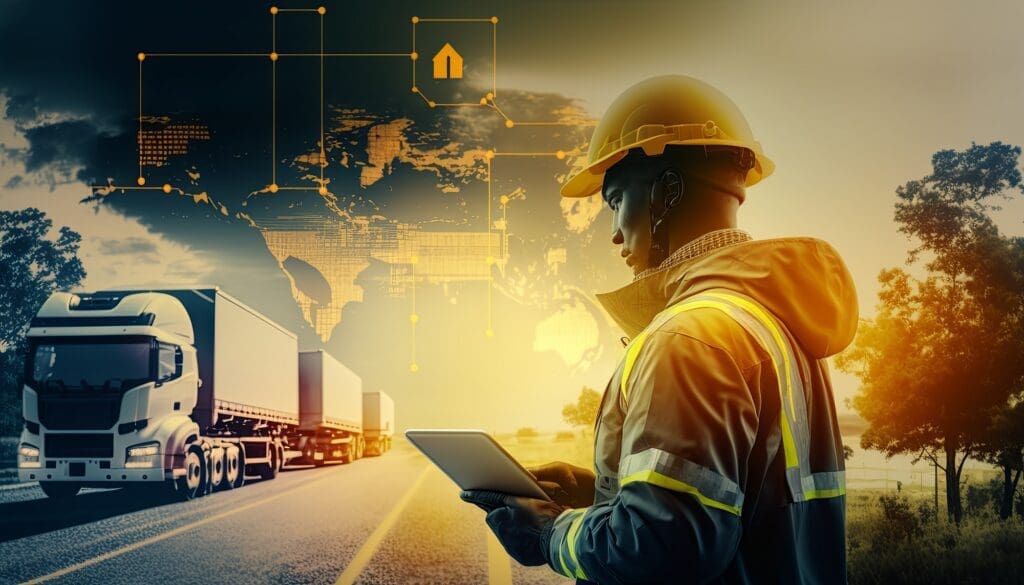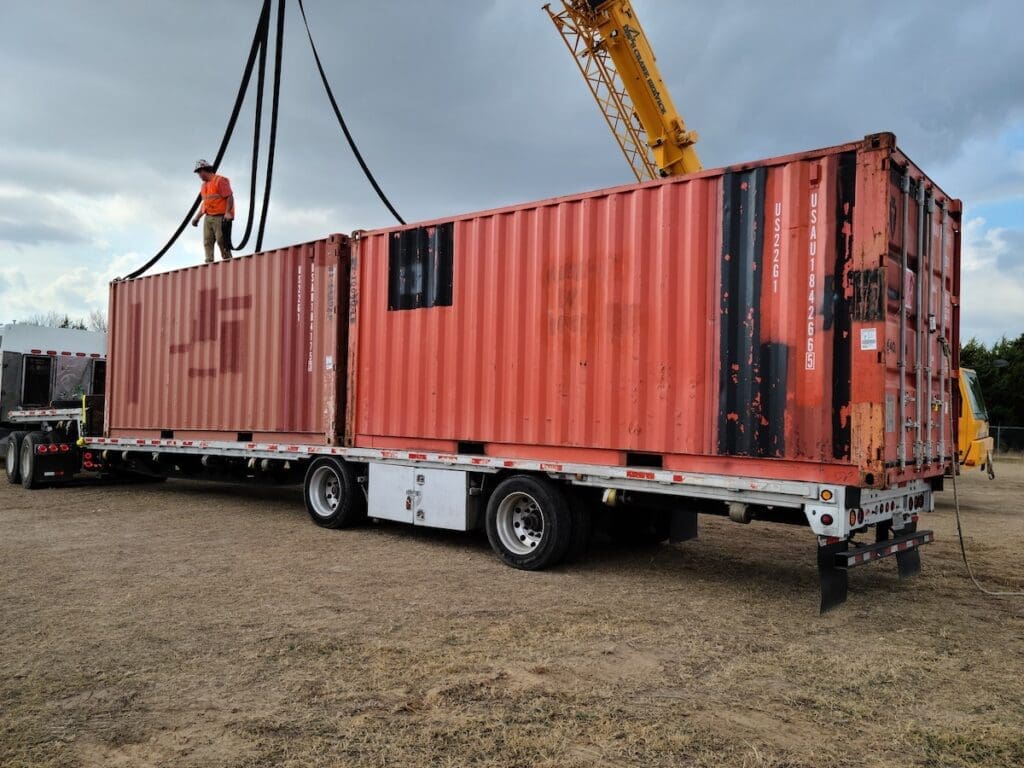City traffic and congestion are nothing new. In 44 BC, Gaius Iulius Caesar issued the following edict: “After next January 1st, no one shall drive a wagon along the streets of Rome or along those streets in the suburbs where there is continuous housing after sunrise or before the tenth hour of the day.” That’s right, ancient Romans had a tough time delivering goods, too.
It doesn’t look like delivery to cities will get any easier in the future. It’s predicted that more than 60% of the population will be living in cities by 2030. People in those larger, more congested urban areas will consume the majority of the goods shipped by truck, which are expected to increase by more than 40% by 2045 (USDOT 2016). If shipping doesn’t change, truckers, shippers, and consumers can expect more delays, more expense, more clogged streets, and more air and noise pollution. The urban area transportation issue will become critical.
University of Pennsylvania sociologist Steve Viscelli thinks he has an answer to the problem. Urban truck ports could “reduce fuel consumption and shipping costs, improve working conditions for truckers, and relieve traffic congestion.” By Viscelli’s definition, truck ports would be located at key points of congestion around big cities. In his 2017 report “Stalled: Make Big Trucks More Fuel Efficient With Smarter Infrastructure Investments,” Viscelli writes, “Each port would provide a place where two different kinds of tractors—one designed to haul trailers in rural areas and one designed for urban areas—can meet up to swap trailers. At their simplest, these ports would be little more than large parking lots where tractors can drop-off and pick up trailers.”
Potential Benefits of Truck Ports
Viscelli, who is considered an expert in the field of work, labor markets and public policy related to freight transportation, automation, and energy believe that truck ports have many benefits:
Easing Congestion – A reduction in city traffic is an obvious plus, with additional advantages:
- Avoiding rush hour traffic – Today’s truckers who need to deliver to cities (or drive through them) can’t always avoid rush hour. They must choose whether to crawl along roadways (several US cities have average traffic speed in the single digits) or to stop—and the recent ELD mandate may push them to stop. By using truck ports, loads arriving in cities during rush hour could be held for off-peak delivery (like those ancient Roman deliveries).
- Serving regional and small supply chains – Detroit, San Francisco, New York City and Washington D.C., Philadelphia and Syracuse have public wholesale food terminals—logistical facilities where businesses of different sizes can buy and sell wholesale. Truck ports could serve a similar function.
- Decreasing air pollution – Diesel exhaust has been linked to lung diseases, asthma, and heart disease. A recent University of Toronto study identified large diesel trucks as “the greatest contributors to harmful black carbon emissions close to major roadways, indicating that vehicle types matter more than traffic volume for near-road air pollution.” The use of greener technologies (discussed below) could alleviate this issue.
Reducing Fuel Consumption – Tractor-trailers use about 10% of total US oil consumption—around 28 billion gallons (US Department of Energy 2014). If truck traffic does increase by 40%, that amount will increase exponentially. Truck ports could help reduce fuel use by reducing the number of trips made, decreasing the need for LTL loads, and allowing innovative technologies to become commonplace.
Enabling the Use of New Technologies – “Today’s super trucks get more than twice the fuel economy of the average heavy truck, “ writes Viscelli. “If all trucks in the US used the existing technology on this truck it would save 12.6 billion gallons of diesel annually and could save operators more than $20,000 annually per vehicle.” But the new technology is tough to employ when the industry needs vehicles that can handle the different operational requirements of both long-distance driving and inner-city navigating. Technologies that make trucks more aerodynamic for interstate travel can cause problems on narrow city streets or get damaged in tight quarters. Quieter, cleaner hybrid engines that capture energy from braking would reduce air and noise pollution in cities, but are costly and don’t offer any benefits at high speeds. By using truck ports, Viscelli argues, fleets could take advantage of fuel-, cost-, and time-saving technology by utilizing vehicles designed for their specific functions.
Reducing Infrastructure Expansion Needs – Truck ports would make efficient use of existing roads, “most of which sit relatively unused for most of the day and are then choked with congestion for a few hours every weekday morning and afternoon.” Removing trucks from urban highways during rush hour could halt increasing demand and reduce the need for new roads.
Making Truckers’ Lives Easier – The use of truck ports would mean more short-haul jobs, which could keep truckers home more often. It would also mean that long-haul truckers could avoid congestion, making more efficient use of their time.
What’s Not To Like?
The major disadvantage links back to drivers and improved technology. The idea of truck ports is especially attractive to transportation providers considering autonomous trucks. It makes sense: Autonomous vehicles do well on highways but need drivers to navigate through cities. Viscelli, never one to sit down on the job, issued his newest report in September 2018. In “Driverless? Autonomous Trucks and the Future of the American Trucker,” Viscelli backpedaled a bit regarding truck ports’ positive effects on drivers, as he is concerned about the quality of short-haul driver jobs: “Local, for-hire driving has traditionally been lower paid and has some of the worst labor abuses,” he writes. Doug Bloch of the Teamsters Joint Council 7 is worried, too. In “Driverless” he said, “What will end up happening is this further erosion in job quality and this erosion is going to exacerbate the problem of the truck-driver shortage and it could potentially undercut employers like UPS, who have employees who make good wages and good benefits.” Chris Spear, CEO of the American Trucking Associations doesn’t think there’s an issue, given the current driver shortage. “It’s absolutely ludicrous,” he told CNN. “Maybe [in several] decades we’re talking about a driverless environment. Our ability to attract new talent into the trucking industry is really impeded.”
Let Us Take Care of Your Future
Will we have truck ports? Will autonomous trucks become commonplace? Will drivers’ lives change for the better or for the worse? We can’t say for sure, but we can promise that we’ll stay on top of industry changes and always offer dependable, professional transport for all of your heavy equipment needs. At Next Exit Logistics, we earn the trust of our clients with efficiency, transparency, and security. In addition, we understand how to handle freight services for unusual, oversize, or overweight shipments and are certified to arrange the shipment of hazardous materials. To learn more about our services, call Next Exit Logistics at 866-624-2661 or contact us via email.




